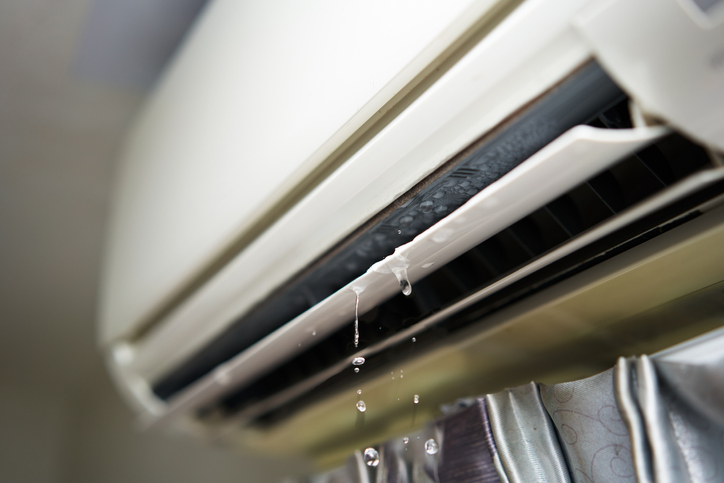Water coming from your AC unit is one of the last things you want to see. Not only should you be concerned about electrical components getting wet, but a leak may be a symptom of a larger issue. On the other hand, it could be just a simple fix. To help you determine the source of your leaky AC and what you should do next, follow this leaking AC guide, courtesy of Spoor's Heating & Air Conditioning.
If you're worried about a leaking AC unit and need fast repairs, contact us 24/7 for emergency repairs. You can also contact us to schedule an appointment during regular business hours.

Dirty Air Filter
An AC filter plays a bigger role in the function of the AC than most people realize. Before cooling, your HVAC system begins by pulling air through the filter to remove dust, allergens, and other particles for the best indoor air quality. Over time, the filter becomes clogged and needs to be replaced. Leaving the filter unchecked can make it harder for the AC unit to pull air through to be cooled. When airflow becomes insufficient, the evaporator coils can freeze, which melt when the AC turns off, causing water to drip from the unit. To prevent this, replace your filter every 45–90 days.
Old Or Faulty Drain Pan
The drain pan's function is to collect water condensation that occurs naturally as a function of the AC. Sometimes, the pan is installed incorrectly, resulting in an exaggerated tilt. Additionally, over time, the pan can begin to degrade, resulting in sagging, breaks, or cracks, which can cause the pan to overflow or drip. Most AC units have two drain pans, one permanent and one removable. If there are issues with the permanent drain pan, contact one of our HVAC technicians for AC repairs! If the issue is with the removable pan, we can replace it or temporarily seal it with a water sealant.
Clogged Drain Line
Drain lines remove collected water from the drain pan. Over time, the drain lines can become clogged with dust, mold, and other contaminants. This will cause the drain pan to overflow and leak because the water cannot be removed. Depending on the severity of the clog, you can attempt to clear the line with a wet-dry vac yourself. However, to prevent this from becoming a problem, we can clear the drain lines during HVAC maintenance.
